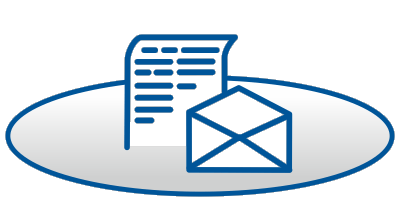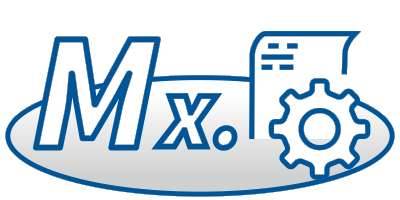Informix Machine Notes
Hier finden Sie aktuelle Machine-Notes zu Informix-Produkten, die wir für Sie herausgesucht haben.
=================================
MACHINE SPECIFIC NOTES
FOR
IBM Informix Database Server 12.10.FC8 PRODUCT RELEASE
ON Windows x64
DATE: 11 Nov 2016
=================================
OS Information : Built on Windows Server 2008 x64 SP2. Certified on
Windows Vista x64, Windows 7 x64, Windows 8 x64,
Windows Server 2008 R2 x64, Windows Server 2012
and 2012 R2 x64.
System Requirements
===================
1. This product is built on Windows 2008 with Service Pack 2 using
the following compiler from Microsoft Visual Studio 2008
(Version 9.0.30729.1 SP):
Microsoft Visual C++ 2008 91605-270-6598545-60796
2. Enable Connections on Windows Vista
To enable connections between database servers on the Vista operating
system, you must enable network discovery and NetBIOS over TCP/IP.
To enable connections:
1) From the Control Panel, double-click Network and Sharing.
2) In the Sharing and Discovery section of the Network and Sharing Center,
click Network discovery and then Turn on network discovery.
3) In the Network section, click View Status next to the Local Area
Connection.
4) In the Local Area Connection Status dialog box, click Properties.
5) In the Local Area Connection Properties dialog box, choose the
appropriate Internet Protocol Version and click Properties.
6) In the Internet Protocol Version Properties dialog box, click Advanced.
7) On the WINS page of the Advanced TCP/IP Settings dialog box, click
Enable NetBIOS over TCP/IP and then click OK.
8) Continue clicking OK or Close until all dialog boxes are closed.
3. Informix Server uninstallation
Due to an issue in installer tool, the registry entries created by
installer will not be automatically removed after Informix server
uninstall. The work around is to cleanup existing registry entries under
HKLM->Software->Informix->DBMS.
4. IBM Informix Database Server uses the libraries and utilities provided by
the IBM Global Security Kit (GSKit) for data encryption and Secure Sockets
Layer (SSL) communication. The GSKit is bundled with the server and will
be installed on your machine as part of the server installation process.
Here are more details on the GSKit:
a. The GSKit is also bundled with other IBM products and might
already be present on your machine. If the GSKit was previously
installed, but is older than version 8.0.50.70, Informix server
will upgrade the GSKit on your machine to version 8.0.50.70. If
GSKit is not installed, Informix server will install GSKit in
\Program Files\ibm\gsk8_64 directory on your machine.
b. The GSKit installation directory must have 25 MB of free disk space.
5. Using BladeManager 4.20
If the GUI BladeManager wblademgr.exe is used, Microsoft .NET Framework v2
or higher is required to be installed on the system.
6. Installation Prerequisite on Windows 7 or Later Versions
For Windows 7 and subsequent Windows versions, you must turn off User
Account Control (UAC) security before you install IBM� Informix�.
For information about how to create groups, add users to groups, and
turn off User Account Control, see your Windows documentation.
Check the following web site for the latest Windows system requirements
for IBM Informix Database Server:
http://www-01.ibm.com/support/docview.wss?rs=630&uid=swg27013343
System Configuration
====================
1. Location of Shared Memory
The ONCONFIG variable SHMBASE is recommended to be set to the following:
SHMBASE 0x80000000L
2. Administrator permission for running server utilities
On Windows Vista, Windows 2008 and Windows 7, you must run any
server utility commands with administrator permission: for example,
the 'oninit -iy' command to initialize the server.
To run Informix utility commands as an administrator, from the Start menu,
choose the Informix server name and then choose "Run as administrator".
A command prompt with administrator permissions opens.
Feature Notes (alphabetized by feature)
=============
1. Informix Interface for TSM
The Informix Interface DLL for TSM is installed as
%INFORMIXDIR%\bin\libtxbsa.dll
This interface is built with TSM API version 5.3.2.
To use Tivoli Storage Manager with Informix databases, refer to IBM
Informix Backup and Restore Guide.
2. IPv6 Support
The Informix database server supports Internet Protocol Version 6 (128 Bit
Internet Addresses) as well as IPv4 (32 Bit Addresses).
In order for the machine name that is specified in the SQLHOSTS registry
to resolve to the correct IP address, the name services files on the
Operating System should be correctly configured.
For compatibility with earlier version of Informix client and server
products, assign each host name with both an IPv4 address and an IPv6
address. If the listener needs to be bound to an IPv4 address, and the
name services resolve the name in the order of the IPv6 address followed
by the IPv4 address, then an explicit IPv4 address needs to be put in the
nodename field of server registry.
3. J/Foundation (Java in the Server)
The IBM Runtime Environment, Java(TM) Technology Edition, Version 7.0
release is installed in C:/informix1210/extend/krakatoa/jre and should be
used with the J/Foundation component.
A Java user-defined routine (UDR) runs in a Java virtual processor. Use
the VPCLASS configuration parameter to specify the number of virtual
processors for the server. You configure Java virtual processors in
the "Java configuration parameters" section of the onconfig configuration
file. The default onconfig.std file is in the C:/informix1210/etc directory.
To develop Java UDRs for the server on this platform, use Java Platform,
Standard Edition Development Kit (JDK) 7 or an earlier version according
to Java compatibility guidelines. That kit can be downloaded from
http://www.oracle.com/technetwork/java/javase/downloads/jdk7-downloads-1880260.html.
4. Large Memory Addressability (LMA)
IBM Informix LMA provides the ability to support system configurations
with greater than 4GB of RAM.
The values for the following ONCONFIG parameters are increased from
32-bit limit by LMA support:
- The maximum number of buffers in BUFFERPOOL is 2147483647.
- The maximum of LRU queues for lrus field in BUFFERPOOL is 512.
- The DS_TOTAL_MEMORY, which is the total memory available for
decision support memory, is only limited by the amount of virtual
memory available. The sort memory comes out of the DS_TOTAL_MEMORY
memory and hence there is no explicit limit on the amount of sort
memory.
- The read ahead parameter RA_PAGES is only limited by the number of
buffers and therefore can be any value less than 2147483647. The
"chunk" write algorithm is not dependent on the amount of buffers
or shared memory and can write as many pages in a single I/O as
possible.
- The maximum size of any shared memory segment is 4398046511104 bytes.
- The maximum value for SHMADD is 4294967296 kilobytes.
Refer to IBM Informix Administrator's Reference manual for the information
about the related configuration parameters setting.
5. LDAP Authentication
This feature is set up and configured like the Pluggable Authentication
Module (PAM) that is used on UNIX and Linux. Use the LDAP Authentication
Support module when you want to use an LDAP server to authenticate your
system users.
The authentication module is a dynamic link library that resides in the
%INFORMIXDIR%\dbssodir\lib\security directory. The parameters of the module
are listed in the %INFORMIXDIR%\dbssodir\pam.conf file.
The source code for a fully functional LDAP Authentication Module and
samples of the required configuration files are included in the
%INFORMIXDIR%\demo\authentication directory. You can modify the code for
your specific LDAP Authentication Support module.
6. Network Protocols
The following protocol(s)/interface(s) are supported on this platform:
SOCKETS using TCP/IP
IPC using named pipe
To use SOCKETS with TCP/IP:
a. The NETTYPE entry in the ONCONFIG file and the value data of
PROTOCOL in the SQLHOSTS registry entry must contain "onsoctcp"
b. To enable an IBM Data Server Client to connect to the database
server, the NETTYPE entry in the ONCONFIG file and the value
data of PROTOCOL in the SQLHOSTS registry entry must contain
"drsoctcp"
If a CLI or JCC client wants to connect to the database server
through DRDA while supporting SQLI connections, you must add a
DBSERVERALIASES entry to the ONCONFIG file that corresponds to
the SQLHOSTS registry entry.
To use IPC (interprocess communication) with named pipe:
a. The NETTYPE entry in the ONCONFIG file and the value data of
PROTOCOL in the SQLHOSTS registry entry must contain "onipcnmp".
Remote 32-bit or 64-bit applications and tools (example: ESQL/C, 4GL, ISQL)
can only connect to the IBM Informix Database Server using the TCP/IP
protocol.
Local 32-bit applications and tools can connect to the 64-bit server using
either the TCP/IP or the IPC named pipe protocols.
7. OnLine Backup and Restore (ON-Bar)
ON-Bar uses the XBSA interface. Some of the functions invoked by ON-Bar
are in a dynamic link library supplied by third party storage management
vendors. For ON-Bar to access these functions, you must specify the library
name and location in the BAR_BSALIB_PATH parameter in the ONCONFIG file.
For example, if you are using PSM:
Set BAR_BSALIB_PATH to %INFORMIXDIR%\bin\libbsapsm.dll
For example, if you are using TSM:
Set BAR_BSALIB_PATH to %INFORMIXDIR%\bin\libtxbsa.dll
8. Secure Sockets Layer
IBM Informix Database Server uses the libraries and utilities provided by
the IBM Global Security Kit (GSKit) for Secure Sockets Layer (SSL)
communication.
9. Simple Password Communications Support Module
The name of the IBM Informix dynamic link library for Simple Password CSM
on Windows is libixspw.dll. This dynamic link library is installed in
%INFORMIXDIR%\bin.
10. XML User-Defined Routines
You cannot run XML UDRs at large memory segments (VX class) on this
platform.
To avoid XML UDR execution failure, configue and adjust the following
Informix server configuration parameters in the onconfig file:
PRELOAD_DLL_FILE -
Specify the path name for a shared library file that is
pre-loaded when the server is started.
BUFFERPOOL -
Adjust the memory field to a lower value.
SHMVIRTSIZE -
Adjust it to a lower value.
Features not supported
======================
1. Rolling upgrades are not supported in IDS version 12.10.xC8. Migrating to
this version from a previous version requires changes to disk structures,
and this conversion process is incompatible with a rolling upgrade. When
upgrading HDR and RSS secondary servers to version 12.10.xC8 you must
follow the steps listed in the on-line documentation under "Migrating
an offline cluster to a new major version."
2. MQ Messaging Database Extension
3. Web Feature Service Database Extension
4. Mapped users
Migrating to this 64-bit Version
================================
1. To migrate to this 64-bit version from previous versions of the server
(for Windows 64-bit as well as Windows 32-bit), refer to the migration
process described in the IBM Informix Migration Guide, Version 12.10.
To revert from this 64-bit version to previous 64-bit versions refer to
the IBM Informix Migration Guide, Version 12.10.
To revert from 64-bit 12.10 (this server) to 32-bit 12.10:
----------------------------------------------------------
a. Disconnect all users from this server. The 64-bit server should be in
online mode.
b. Run the following command as user informix or DBA:
%INFORMIXDIR%\etc\conv\update.exe -32 -d
c. Shutdown the 64-bit server.
d. Bring up the 32-bit 12.10 server by setting your INFORMIXDIR
environment variable to point to the 32-bit distribution.
To revert from 64-bit 12.10 (this server) to 32-bit 11.70, 11.50, 11.10,
10.00:
------------------------------------------------------------------------
a. Disconnect all users from this server. The 64-bit server should be
in online mode.
b. Run the following command as user informix or DBA:
%INFORMIXDIR%\etc\conv\update.exe -32
c. Revert to Version 11.70 or 11.50 or 11.10, or 10.00 32-bit by following the steps
described in the IBM Informix Migration Guide, Version 12.10, in the
section "Reverting from Informix Version 12.10".
2. All UDRs and Database Extension modules that are built in 32-bit mode must
be re-compiled in 64-bit mode to work with the 64-bit server. If you have
any UDRs that were developed on 32-bit, make sure that the proper size
and alignment of the data structures are used for the UDRs to work
correctly on 64-bit after re-compilation in 64-bit mode.
Defects Fixed in this release
=============================
For information about defects fixed in this release, see:
Click here for a list
(C) Copyright IBM Corp. 2007, 2016























